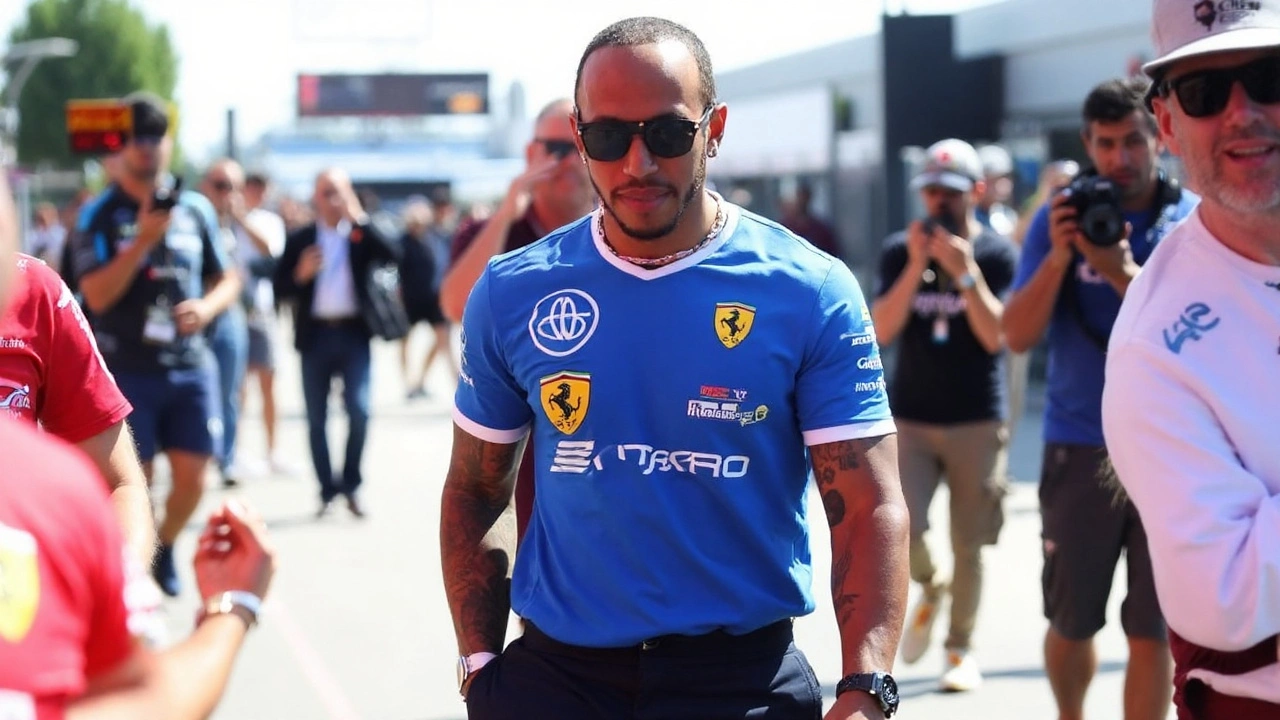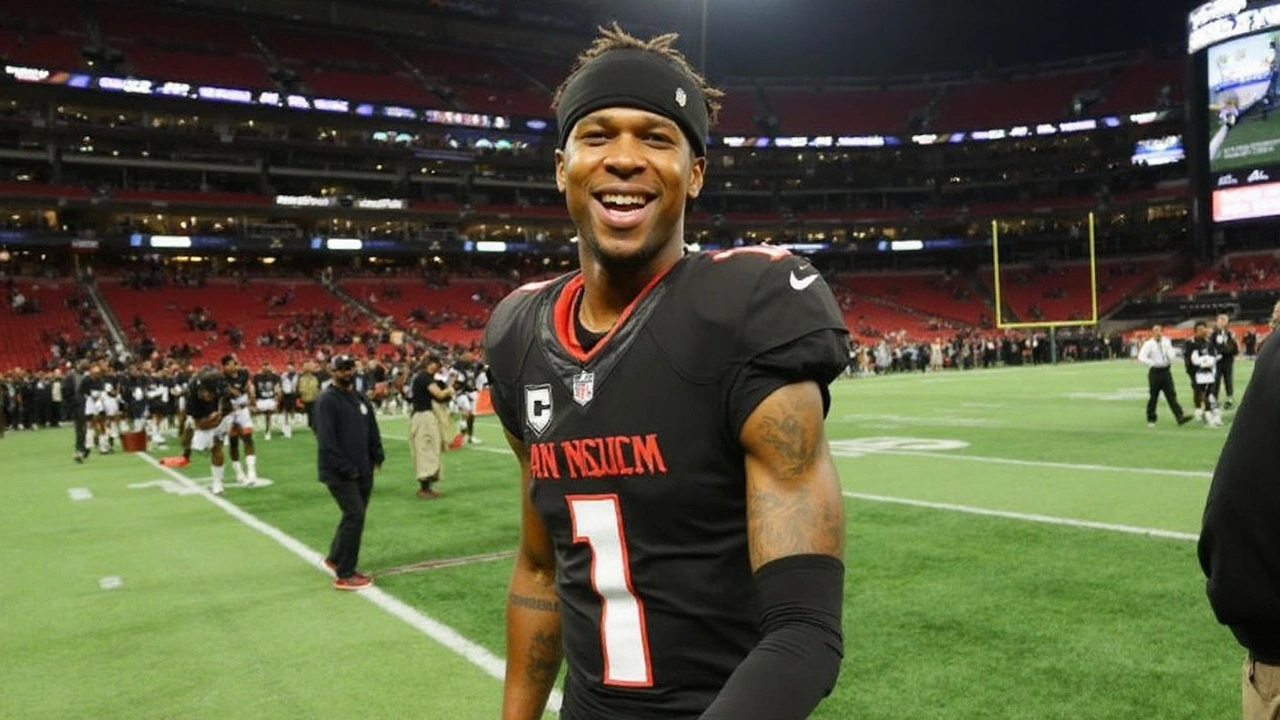Mooney’s status goes down to the wire
Darnell Mooney might not know if he’s playing until warmups. The Atlanta Falcons listed the veteran wideout as questionable for Sunday’s opener against the Tampa Bay Buccaneers, and head coach Raheem Morris said the decision will be made right before kickoff at Mercedes-Benz Stadium.
The shoulder injury dates back to July 24. Mooney laid out for a deep ball during 11-on-11 work in camp, hit the ground hard, and left with a trainer. He didn’t return that day and was sidelined for the rest of training camp. This week brought the first real signs of progress: he joined a jog-through and took part in individual drills, then logged three straight limited practices.
Morris sounded cautiously upbeat, noting that Mooney has looked better in recent sessions, but he also pointed to conditioning and overall workload as part of the call. The staff wants to know two things: can he help them win on Sunday, and can he do it without risking a setback? That’s the tightrope with early-season injuries—there’s urgency to start fast, but the bigger goal is keeping key players available for the long haul.
“We’ve got a chance to wait up until the last minute,” Morris told reporters this week. He framed the decision around performance and safety, not just availability. Translation: even if Mooney dresses, the Falcons could manage his snaps or package him for specific situations.
For receivers, shoulder injuries aren’t just about pain tolerance. They affect catch radius, contested grabs, landing after high-pointing a throw, and even blocking in the run game. A full-speed test in warmups will tell the coaches more than any rehab drill. NFL teams must declare inactives 90 minutes before kickoff, so expect clarity in that window.
Mooney arrived in Atlanta to give the offense a true field-stretcher opposite Drake London. He has proven production—most notably a 1,000-yard season in 2021—and his speed threatens defenses vertically and horizontally. That element matters against a Todd Bowles defense that loves to blitz and disguise coverage. If safeties don’t feel threatened deep, they creep into the box and make life harder on the run game and on underneath routes.

How Atlanta adapts if he sits—or if he’s limited
The Falcons have contingency plans. London is the alpha target, and tight end Kyle Pitts is healthy and primed for a heavy role, especially on third down and in the red zone. If Mooney can’t go, expect more snaps and motion usage for the other receivers and more designed touches for backs in the passing game. Bijan Robinson gives them a flexible outlet—screens, angle routes, and releases to beat pressure. That’s one way to counter Bowles’ heat without forcing throws outside.
Another adjustment: tempo and spacing. New-look Atlanta has leaned into quick-game concepts that turn short catches into long gains. Without Mooney’s pure vertical speed, the staff can still stretch the field horizontally with stacked sets, bunch releases, and jet action to pull defenders out of their spots.
The opponent adds urgency. Tampa Bay’s defense is built around disruption. Vita Vea crowds the middle, and the Bucs mix pressures to force quarterbacks to identify the hot read fast. Having a trustworthy veteran on the boundary changes how defenses rotate coverage. Even if Mooney isn’t targeted often, his presence can keep a safety honest and open lanes for London and Pitts to work the intermediate areas.
If Mooney suits up, watch for a measured deployment: scripted early targets to test comfort, then situational usage on shot plays and crucial downs. If he’s active but limited, Atlanta might lean on motion to free him from jams at the line, minimizing physical contact while still threatening space. If he’s inactive, expect more 12 personnel (two tight ends) to stress Tampa Bay’s linebackers and safeties in coverage.
What’s at stake? It’s a division game in Week 1, which tends to carry more weight later in the season. Winning NFC South games early gives you breathing room in December. That’s part of why this decision is tricky: you want Mooney’s speed against a blitz-heavy unit, but burning a player’s health in September can haunt a roster in November.
Mooney’s background matters here. He’s known for toughness and precise route work. After a breakout 2021, his last two seasons were uneven, with injuries and shifting roles affecting numbers. Atlanta signed him to reset his role: stretch the field, punish single coverage, and be a reliable outlet when defenses shade toward London. That makes his availability a genuine swing factor in how the Falcons call this game.
For fans tracking the pregame: keep an eye on the first 20 minutes of warmups. Is he catching high and away from his frame? Does he take contact during receiver–DB drills? Does he wear additional bracing? Those little tells often signal whether a player is a go, a decoy, or a scratch.
For the analytics-minded, Mooney’s vertical gravity shows up in how safeties align pre-snap and how corners play leverage. If the Bucs start rolling a safety toward London without respecting the opposite boundary, Atlanta’s coaches will feel the squeeze on the intermediate game. If Mooney plays and forces Tampa Bay to back off, look for more crossers and digs to Pitts and London to exploit the vacated zones.
And for those wondering how “questionable” usually breaks: it’s a coin flip on paper, but the practice pattern tells a story. Three limited sessions plus cautious optimism usually means a true test-day decision rather than a quiet scratch. The call hinges on pain, strength on contact, and whether he can protect himself if he’s tackled awkwardly.
Final timeline: inactives post 90 minutes before kickoff. If he’s active, expect early touches to gauge comfort; if not, the ball will flow through London, Pitts, and the backs, with schemed explosives replacing pure go routes. Either way, the Falcons will try to keep Tampa Bay’s defense guessing, even if their fastest chess piece ends up watching this one in street clothes.
- Key sign to watch: Mooney’s catch radius and willingness to extend overhead in warmups.
- If inactive: more targets for London and Pitts; added touches for Bijan Robinson in the passing game.
- If active but limited: snap count management, motion to avoid press, selective shot plays.
- Decision window: 90 minutes before kickoff when inactives become official.
